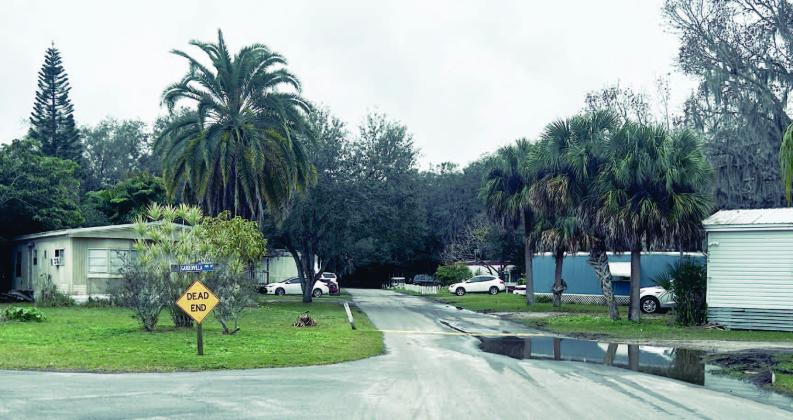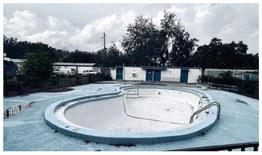On Friday state Rep. Paula Stark held a press conference at St. Cloud’s Lake Runnymeade Mobile Home Park to address House Bill 613, which she hopes to pass to meditate communications between the residents of the park and the property managers.
“We have to make sure our people are taken care of,” Stark said Friday. “We have to see some progress.”
The message behind HB 613 is of improving opportunities to mediate disputes between mobile homeowners and the park owners as well as address certain fees and the criteria for live in assistance.
Some residents spoke about current conditions, on the condition their name would not be shared for fear of reprisal.
“It’s horrible. I’ve lived here since I was six years old and it used to be great,” one lifetime tenant said.
The drive behind this bill began with mobile home parks such as Lake Runnymeade where sharp spikes in monthly lot rents have gone together with unusable amenities, unprotected areas, withheld lot titles, and poor water conditions that still persisted despite the rent increases.
“Lot [amount] increases is based on size and location. It makes no sense because our lots are the same yet our increases are different. But they won’t talk to us.” said another tenant.
The bill would set up a mediation system to create a way to work out disputes between mobile home owners and park owners, who often rent out the lot—for rates that are skyrocketing in the case of Lake Runnymeade.
Those residents have expressed frustration and worry over the lack of communication with the owners over basic amenities, utilities and repairs. Despite paying the higher lot rents, they say conditions have been declining, with many of their amenities from un-gated dog parks to boating dock pathways still not fixed.
One tenant stated that he didn’t have running water for days because the owners haven’t properly done repairs and has had to resort to using other means to get by.
“We haven’t had an actual licensed company tell us whether this water is safe to drink!” yet another tenant expressed. “One minute, it’s like hard water and the next minute, [the water] tastes like you’ve been in a swimming pool.”
According to MH Village, Lake Runnymeade, owned by Homes of America, was built in 1975 and lists having a swimming pool and a waterfront as their amenities, yet the residents stated that they have not had a working swimming pool for three years and their waterway has been blocked by overgrowth for some time. Communication with management in case of an emergency has become an issue, residents said.
A Homes of America representative was not available to speak to this story.
Stark said the issue also tackles the affordable housing crisis, as mobile home parks are dotted with lower-income families.
“There were glasses of water that looked like ice tea. You can’t increase lot rents and keep putting people at risk at the same time. This neighborhood breaks my heart.” Stark said.
The bill would also more than double the payment to mobile home owners who have to leave a park due to its sale or a land use change. The Florida Mobile Home Relocation Corporation would be able to pay them $6,500 for a single-wide home and up to $11,500 for a double-wide.
The Lake Runnymeade interviewed for this story said they hope that House Bill 613 would be the push needed to improve their living conditions, and that communication between the residents and the owners would improve their situation enough in order to change the many problems that are affecting them and their families.
Stark said that communities and mobile home owners in need of assistance can seek Osceola County’s legal aid, visit Florida’s Department of Business and Professional Regulations at www. myfloridalicense. com/ DBPR, or visit Stark’s office at 1930 Fortune Road office in Kissimmee for information and legal help.





